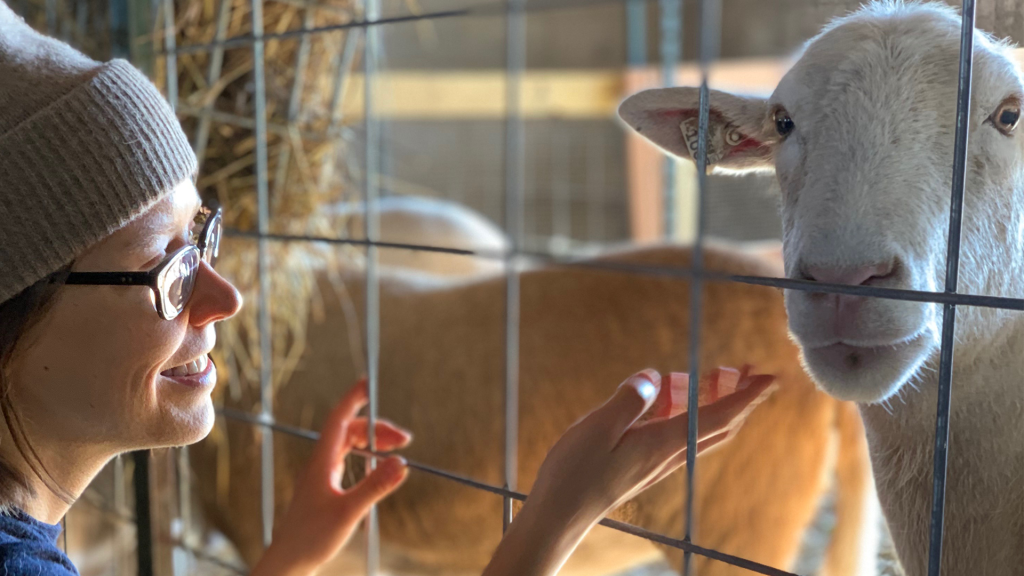Reposted from: https://thehill.com/business-a-lobbying/business-a-lobbying/589117-standing-up-for-family-farms?rl=1
A small group of family farmers has emerged as an influential force in the Biden administration’s push to increase competition in the highly consolidated meatpacking industry.
President Biden’s plan to provide $1 billion to expand independent meat processing capacity — meant to lower meat prices and boost farm profits — drew inspiration from Farm Action, a little-known advocacy group pushing back against corporate monopolies in the U.S. food system.
The nonprofit is the brainchild of Joe Maxwell, a fourth-generation farmer based out of Columbia, Mo., who served as the state’s last Democratic lieutenant governor from 2000 to 2005, and Angela Huffman, a sixth-generation farmer in rural northwest Ohio.
Huffman and Maxwell, who both still live and work on their own farms, have seen progress in their campaign to get the White House to back small meat processors and fortify a 100-year-old law designed to protect small farmers and ranchers from price-gouging.
“Many of our team members come from family farms,” Maxwell said. “If my little lamb needs to be fed, then I’m going to go offline and feed the lamb. If the hawks are bothering Angela’s chickens, then we may have a call with Angela underneath the tree so she can scare them away.”
The two met a decade ago amid their efforts to unite farmers and animal welfare advocates against cruel treatment of livestock in factory farms. They worked together at the Organization for Competitive Markets, a Nebraska-based advocacy group that battles meatpacking giants, before launching Farm Action, formerly the Family Farm Action Alliance, in 2017.
“We saw a need in the movement to have an organization that was focused on the abusive nature of corporate power up and down the food supply chain,” Huffman said. “Our effort is not to replace all the great work other organizations are doing in their specific lanes, but to help connect that for the general public and policymakers.”
The White House plan to increase competition in the meat supply chain, announced last week, dedicates $375 million to the expansion of independent processing plants in underserved areas, 50 percent more than Farm Action requested in an August letter to the administration.
The proposal also follows some of the group’s other recommendations by providing $100 million to help small food processors pay for government inspection costs and another $100 million to bolster worker safety and training at processing plants.
Biden noted last week that 85 percent of beef processing, 70 percent of pork processing and 54 percent of chicken processing is controlled by the four largest meat processing firms. That leaves some farmers and ranchers with access to just one customer and little leverage over livestock prices.
“There has never been a president who has been this open and knowledgeable on the issue of corporate power,” said Maxwell, who got his start in farming at the height of the ’80s farm crisis, which forced thousands of family farms into bankruptcy. “For a person my age, it is extremely encouraging to see.”
Farm Action, which has fewer than a dozen employees, got a leg up on larger groups by keying in on the Biden transition. It backed several anti-monopoly advocates who ultimately took on important roles in the administration, including Federal Trade Commission Chairwoman Lina Khan, White House adviser Tim Wu and Department of Agriculture (USDA) senior adviser Andy Green.
“Too often we just focus on who the secretary is going to be, and that’s important, but we really took a deep dive and looked at how we could change the dynamics and build a team that’s willing to embrace new thinking,” Maxwell said.
The administration has leaned on anti-monopoly groups to help craft its economic agenda. Those organizations cheered Biden’s July executive order to crack down on anti-competitive practices, which specifically called out the meatpacking industry.
The order tasked the USDA with strengthening enforcement of the Packers and Stockyards Act, a century-old law meant to protect farmers and ranchers from unfair and deceptive practices in meat markets, and making it easier for farmers to bring claims under the law.
Farm Action is pushing the Biden administration to follow through on the rulemaking, while also lobbying the USDA to crack down on the practice of relabeling imported meat to make it appear as if it was grown by American farmers.
Maxwell and Huffman are cautiously optimistic, knowing that well-funded lobbying efforts and midterm election dynamics could upend some of their priorities. But they’re emboldened by a swelling of public interest about how food gets to families’ plates, driven in large part by pandemic-induced price increases and supply chain issues that affect all Americans.
“COVID really has exposed the frailty of our current food system,” Maxwell said. “Shelves were empty for the first time in Americans’ lives. This holiday, look how much beef cost, and yet farmers are still going broke. Those stories are getting out there.”



